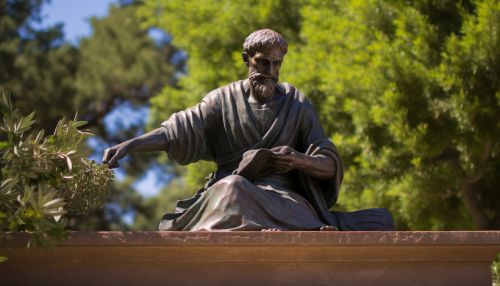Hippocrates
Early Life and Education
Hippocrates was born around 460 BC on the Greek island of Kos. His father, Heraclides, was a physician and likely taught him the medical practices of the time. Hippocrates also studied under the tutelage of Herodicus of Selymbria, a renowned physician and teacher of medicine, and Democritus, a philosopher and scientist who had a significant influence on his medical philosophy.


Medical Philosophy
Hippocrates is often referred to as the "Father of Medicine" due to his significant contributions to the field. He is credited with revolutionizing medicine in ancient Greece by separating it from theology and philosophy, thereby establishing medicine as a profession in its own right. He believed that diseases were caused by natural phenomena and not by the wrath of the gods, a radical idea at the time.
Hippocrates formulated the Hippocratic Oath, a code of ethical conduct for physicians that is still in use today. The Oath emphasizes the importance of maintaining patient confidentiality, treating patients to the best of one's ability, and refraining from causing harm.
Contributions to Medicine
Hippocrates and his followers documented numerous diseases and their treatments in the Hippocratic Corpus, a collection of medical writings. These texts cover a wide range of topics, including clinical medicine, surgery, obstetrics, and the diagnosis and treatment of diseases.
Hippocrates is also credited with establishing the concept of prognosis. He believed that a physician's role was not only to treat diseases but also to predict their course. This was a significant departure from the prevailing medical practices of the time, which focused primarily on treatment.
Later Life and Legacy
Hippocrates died around 370 BC, but his influence on medicine has persisted for over two millennia. His medical philosophy, ethical principles, and clinical observations continue to shape modern medicine. The Hippocratic Oath, for instance, remains a cornerstone of medical ethics.


